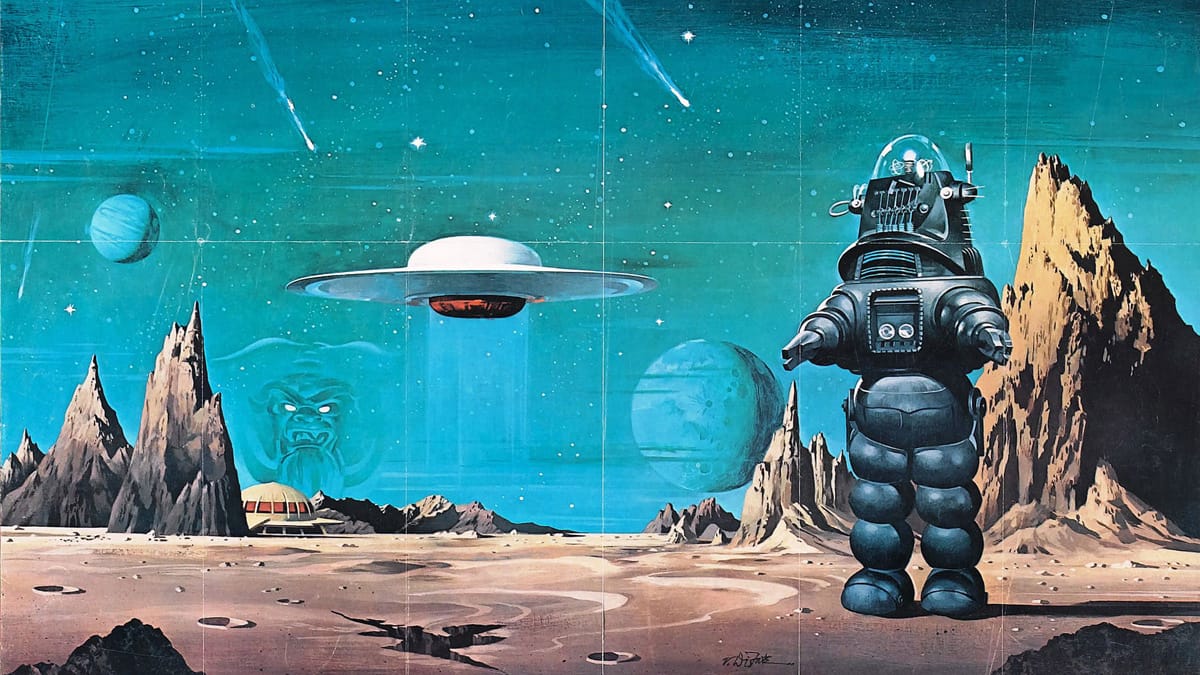Alpha/Google seems to be fairly bad at working on/maturing etc tech that doesn't directly tie into their internet/advertising business model.sferrin said:
I would have hoped we'd have been a little more intelligent than to let it be bought up by a foreign power.
You are using an out of date browser. It may not display this or other websites correctly.
You should upgrade or use an alternative browser.
You should upgrade or use an alternative browser.
Robotics - General News
- Thread starter bobbymike
- Start date
- Joined
- 3 June 2011
- Messages
- 18,337
- Reaction score
- 12,239
muttbutt said:Alpha/Google seems to be fairly bad at working on/maturing etc tech that doesn't directly tie into their internet/advertising business model.sferrin said:
I would have hoped we'd have been a little more intelligent than to let it be bought up by a foreign power.
I'm talking about the US allowing Japan to buy Boston Dynamics.
I know....just pointing out another company specific issue.sferrin said:muttbutt said:Alpha/Google seems to be fairly bad at working on/maturing etc tech that doesn't directly tie into their internet/advertising business model.sferrin said:
I would have hoped we'd have been a little more intelligent than to let it be bought up by a foreign power.
I'm talking about the US allowing Japan to buy Boston Dynamics.
https://twitter.com/EC_Theophile/status/1113003307927244800

Well that's not terrifying, someone (McClick in France) decided the replicators from Stargate SG-1 were something we needed in real life...sweet dreams techno-archnophobes :-\

Well that's not terrifying, someone (McClick in France) decided the replicators from Stargate SG-1 were something we needed in real life...sweet dreams techno-archnophobes :-\
fredymac said:Looks like Softbank is accelerating commercial sales objectives for Boston Dynamics.
https://www.youtube.com/watch?v=5iV_hB08Uns
Key point of Handle v2 is the all electric actuators, not electrohydraulic. seems they have finally caught to (or incorporated) the secret sauce behind the robotics company shaft, who were bought up by Google, then later dissolved when the members refused to be sold off to softbank (after seeing the mess softbank made of the french company aldeberaan and their Pepper robot).
Of note, the former members of shaft have resurfaced in a new startup called GITAI.
- Joined
- 9 October 2009
- Messages
- 21,973
- Reaction score
- 13,631
Speaking of GITAI:
http://www.spacedaily.com/reports/GITAI_signs_joint_robotic_research_agreement_with_JAXA_999.html
https://hardware.slashdot.org/story/19/03/27/2030214/gitai-partners-with-jaxa-to-send-telepresence-robots-to-space
https://spectrum.ieee.org/automaton/robotics/space-robots/gitai-partners-with-jaxa-to-send-telepresence-robots-to-space
http://www.spacedaily.com/reports/GITAI_signs_joint_robotic_research_agreement_with_JAXA_999.html
https://hardware.slashdot.org/story/19/03/27/2030214/gitai-partners-with-jaxa-to-send-telepresence-robots-to-space
https://spectrum.ieee.org/automaton/robotics/space-robots/gitai-partners-with-jaxa-to-send-telepresence-robots-to-space
- Joined
- 16 December 2010
- Messages
- 3,811
- Reaction score
- 4,200
Visions of robots past...
....with the exception of the Daleks & Cybermen of course.
....with the exception of the Daleks & Cybermen of course.
Last edited:
- Joined
- 16 December 2010
- Messages
- 3,811
- Reaction score
- 4,200
Robots & mechasuits from films
- Joined
- 16 December 2010
- Messages
- 3,811
- Reaction score
- 4,200
From an obscure 1990s movie...
- Joined
- 13 August 2007
- Messages
- 8,446
- Reaction score
- 11,005
With those skinny arms, just don't order any candy if there are kids in your neighborhood.
Funny. But in the end i can help thinking … in the end if all these works are eventually done by fancy robots replacing humans, how will these humans earn money to buy/order things to be delivered by robots ?
Mmmmh… I know, every human will need to be an engineer able to design robots for a living.
Last edited:
Before the industrial revolution, most people were occupied in growing food. After the industrial revolution, most people were occupied making things. If a robot/AI revolution removes making things and the ancillary jobs of distribution and servicing, there isn’t any obvious replacement.
With all this automation and AI, nothing seems to be getting cheaper. Cars, houses, stuff in general keep getting more expensive. The only exception is consumer electronics. You still need money to live.
Paying people to do nothing leads to people who are worth nothing and has failed where it has been tried. Earning your livelihood is key to self-respect and requires an economy with the full mix of jobs that allows everyone something they can do. Unless something shows up to create this economy, the robot/AI revolution will self-destruct against the reality that people without jobs can’t buy the stuff produced by it.
With all this automation and AI, nothing seems to be getting cheaper. Cars, houses, stuff in general keep getting more expensive. The only exception is consumer electronics. You still need money to live.
Paying people to do nothing leads to people who are worth nothing and has failed where it has been tried. Earning your livelihood is key to self-respect and requires an economy with the full mix of jobs that allows everyone something they can do. Unless something shows up to create this economy, the robot/AI revolution will self-destruct against the reality that people without jobs can’t buy the stuff produced by it.
Before the industrial revolution, most people were occupied in growing food. After the industrial revolution, most people were occupied making things. If a robot/AI revolution removes making things and the ancillary jobs of distribution and servicing, there isn’t any obvious replacement.
With all this automation and AI, nothing seems to be getting cheaper. Cars, houses, stuff in general keep getting more expensive. The only exception is consumer electronics. You still need money to live.
Paying people to do nothing leads to people who are worth nothing and has failed where it has been tried. Earning your livelihood is key to self-respect and requires an economy with the full mix of jobs that allows everyone something they can do. Unless something shows up to create this economy, the robot/AI revolution will self-destruct against the reality that people without jobs can’t buy the stuff produced by it.
Agree with all of that.
Specially how you see the population growing :

Worldometer - real time world statistics
Live world statistics on population, government and economics, society and media, environment, food, water, energy and health. Interesting statistics with world population clock, forest loss this year, carbon dioxide co2 emission, world hunger data, energy consumed, and a lot more
Italian HyQReal quadbot pulling a small aircraft
Article on it.
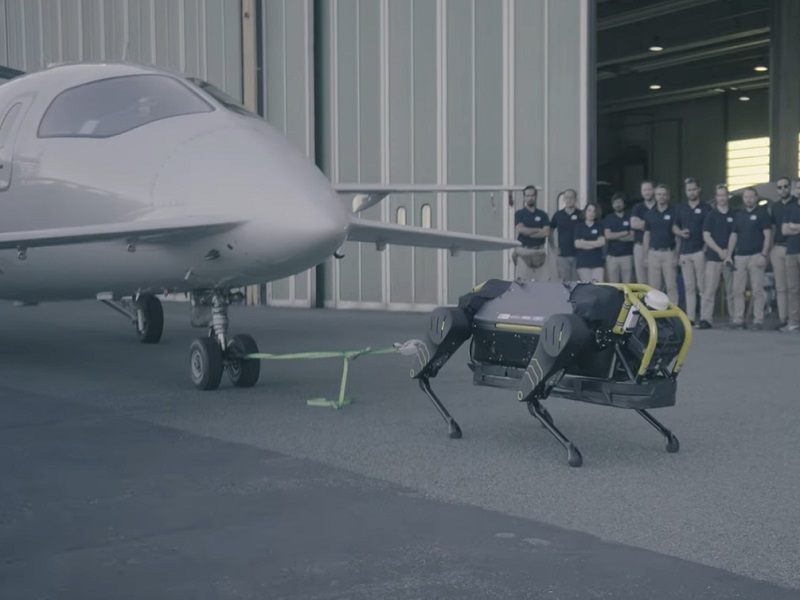
 www.siliconrepublic.com
www.siliconrepublic.com
Article on it.
Watch a dog-like robot struggle to pull a much larger aircraft
To test its strength, Italian researchers tasked a four-legged robot to pull an aircraft many times its weight.
muttbutt said:Alpha/Google seems to be fairly bad at working on/maturing etc tech that doesn't directly tie into their internet/advertising business model.sferrin said:
I would have hoped we'd have been a little more intelligent than to let it be bought up by a foreign power.
I'm talking about the US allowing Japan to buy Boston Dynamics.
You should look at how much land and housing in the US is owned by foreign nationals, followed by foreign purchases and controlling interests in businesses. It is safe to say that still classified technology, as it exists today, is 5 to 10 years ahead of what is being revealed to the American people and foreign interests.
Before the industrial revolution, most people were occupied in growing food. After the industrial revolution, most people were occupied making things. If a robot/AI revolution removes making things and the ancillary jobs of distribution and servicing, there isn’t any obvious replacement.
With all this automation and AI, nothing seems to be getting cheaper. Cars, houses, stuff in general keep getting more expensive. The only exception is consumer electronics. You still need money to live.
Paying people to do nothing leads to people who are worth nothing and has failed where it has been tried. Earning your livelihood is key to self-respect and requires an economy with the full mix of jobs that allows everyone something they can do. Unless something shows up to create this economy, the robot/AI revolution will self-destruct against the reality that people without jobs can’t buy the stuff produced by it.
During World War II, there was a machine in England that produced small radios for civilians. It had two operators. One who filled a bin with parts and another who inserted a battery in the completd radio, turned it on, and if it worked, put it in a box. After the war, the machines were not used.
- Joined
- 9 October 2009
- Messages
- 21,973
- Reaction score
- 13,631

Boston Dynamics prepares to launch its first commercial robot: Spot
Spot the robot will go on sale later this year
- Joined
- 16 December 2010
- Messages
- 3,811
- Reaction score
- 4,200
Before the industrial revolution, most people were occupied in growing food. After the industrial revolution, most people were occupied making things. If a robot/AI revolution removes making things and the ancillary jobs of distribution and servicing, there isn’t any obvious replacement.
With all this automation and AI, nothing seems to be getting cheaper. Cars, houses, stuff in general keep getting more expensive. The only exception is consumer electronics. You still need money to live.
Paying people to do nothing leads to people who are worth nothing and has failed where it has been tried. Earning your livelihood is key to self-respect and requires an economy with the full mix of jobs that allows everyone something they can do. Unless something shows up to create this economy, the robot/AI revolution will self-destruct against the reality that people without jobs can’t buy the stuff produced by it.
During World War II, there was a machine in England that produced small radios for civilians. It had two operators. One who filled a bin with parts and another who inserted a battery in the completd radio, turned it on, and if it worked, put it in a box. After the war, the machines were not used.
Prove it.
- Joined
- 9 October 2009
- Messages
- 21,973
- Reaction score
- 13,631
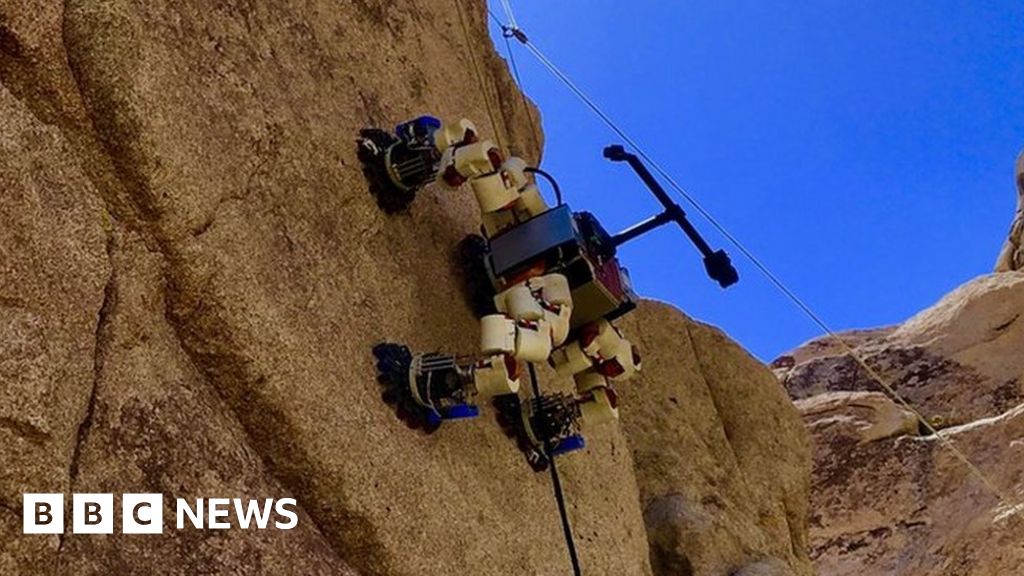
The super-tough drones and robots going where we can't
How do you build unmanned vehicles that can withstand extreme temperatures, pressures and terrains?
- Joined
- 9 October 2009
- Messages
- 21,973
- Reaction score
- 13,631
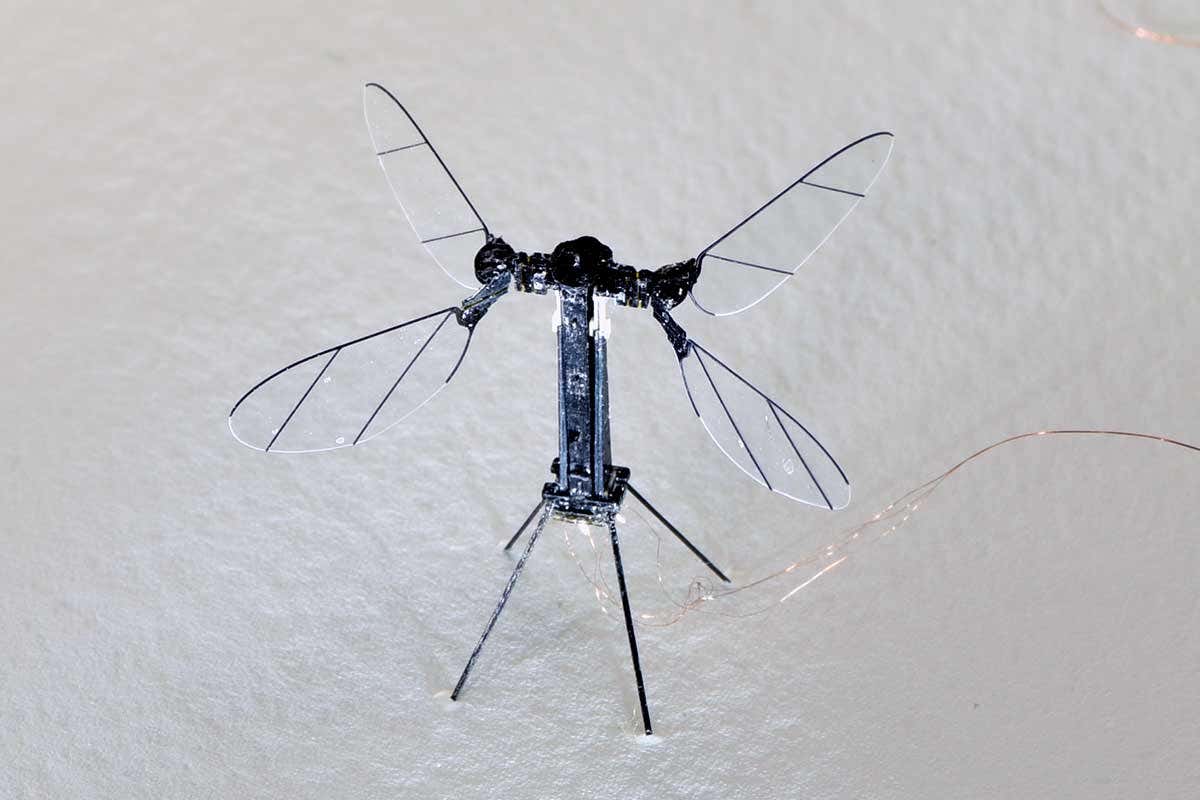
Tiny flying insect robot has four wings and weighs under a gram
RoboBee X-Wing A solar-powered winged robot has become the lightest machine capable of flying without being attached to a power source. Weighing just 259 milligrams, the insect-inspired RoboBee X-Wing has four wings that flap 170 times per second. It has a wingspan of 3.5 centimetres and stands...
- Joined
- 9 October 2009
- Messages
- 21,973
- Reaction score
- 13,631

Robot that started fire costs Ocado $137M
Safety is a massive unaddressed issue in the rapidly evolving automation sector.
 www.zdnet.com
www.zdnet.com
- Joined
- 9 October 2009
- Messages
- 21,973
- Reaction score
- 13,631

Amazon home robot prototype is reportedly waist-high and can be summoned by voice
Amazon is still working on a home robot prototype, codenamed "Vesta," that can roam around your home, according to a new report.
- Joined
- 9 October 2009
- Messages
- 21,973
- Reaction score
- 13,631
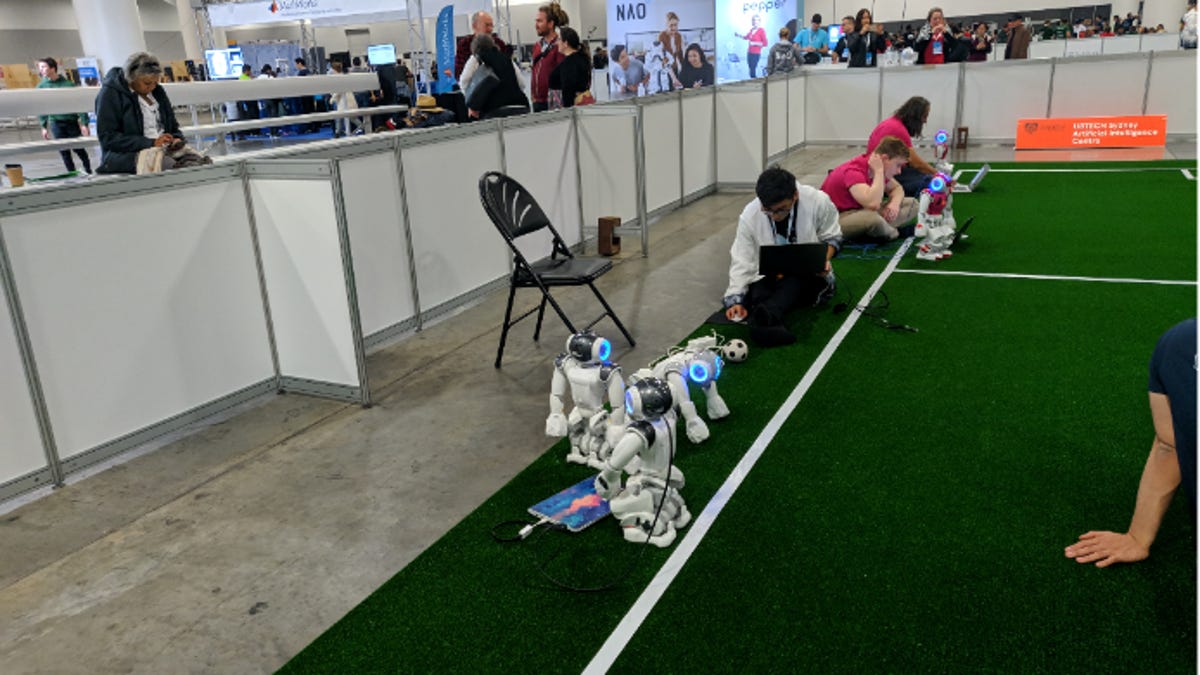
UTS says RoboCup is about building robots to improve lives, not winning
It is also a springboard for university students to enter the tech workforce.
 www.zdnet.com
www.zdnet.com
- Joined
- 9 October 2009
- Messages
- 21,973
- Reaction score
- 13,631

Are You Ready For an Alexa Robot to Follow You Around?
Just in case you wanted a robot butler to follow you around the house, Amazon is reportedly working on an Alexa bot with wheels that can be summoned via
Similar threads
-
-
Discussion: is it going to happen the snipers trap in more danger on battlefield?
- Started by li zhuo peng
- Replies: 7
-
-
Artificial intelligence manipulate multiple mortar systems fire and reload shells at the same time.
- Started by li zhuo peng
- Replies: 28
-
SAC News 50 Years Ago this month from the Air Force Association
- Started by bobbymike
- Replies: 1




